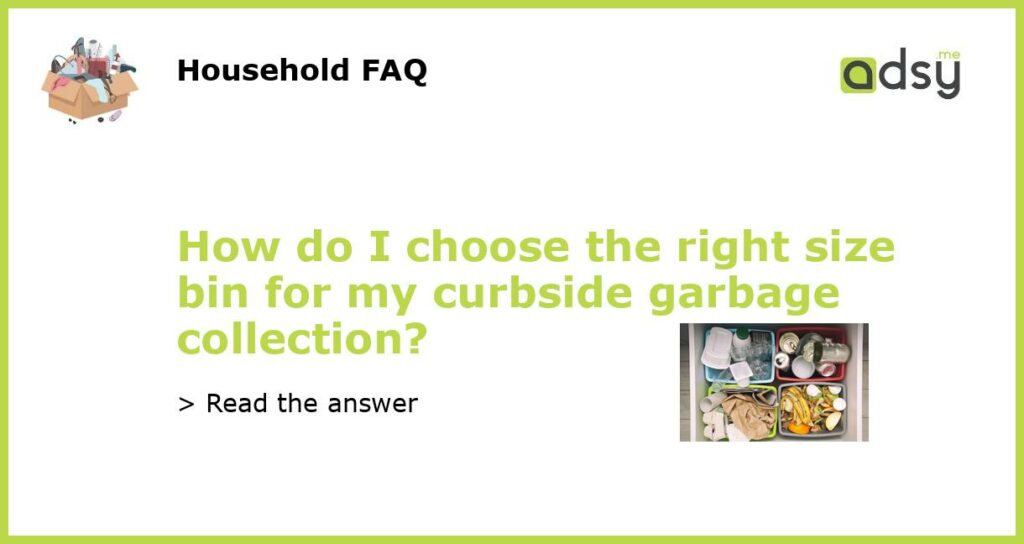Factors to Consider When Choosing the Right Size Bin for Curbside Garbage Collection
Choosing the right size bin for curbside garbage collection is an important decision to make. It ensures that you have enough space for your waste while also minimizing unnecessary costs. Here are some important factors to consider:
Your Household Size
The size of your household is an important factor to consider when choosing the right bin size. A larger household will naturally generate more waste, so you will need a larger bin to accommodate it. On the other hand, a smaller household may not require as large of a bin. Consider how many people are living in your home and how much waste is typically generated on a weekly basis. This will give you an idea of the bin size that would best suit your needs.
Type of Waste
The type of waste you generate is another important consideration. If you have a lot of organic waste, such as food scraps, garden trimmings, or other biodegradable materials, you may need a larger bin to accommodate this type of waste. Alternatively, if a significant portion of your waste is recyclable materials, you may opt for a smaller bin and prioritize recycling instead. Understanding the composition of your waste will help you choose the right bin size.
Frequency of Collection
The frequency of garbage collection in your area will also impact the bin size you choose. If you have weekly or bi-weekly collection, you may need a larger bin to ensure you have enough space to store the waste between collections. On the other hand, if you have more frequent collection, such as daily or multiple times per week, a smaller bin may be sufficient. Consider the collection schedule in your area and choose a bin size that aligns with it.
Local Regulations
Local regulations and guidelines may also dictate the size of bin you can choose for curbside garbage collection. Some areas may have specific requirements in terms of bin size or may limit the number of bins you can use. It’s important to familiarize yourself with local regulations and guidelines to ensure you are in compliance and avoid any issues with waste management authorities.
Cost Considerations
Lastly, cost considerations are an important factor when choosing the right bin size. Larger bins usually come with a higher cost, both in terms of the initial purchase or rental price and ongoing waste collection charges. Evaluate your budget and weigh the cost of larger bins against your actual needs. It may be more cost-effective to opt for a smaller bin and manage your waste more efficiently through recycling and composting.






